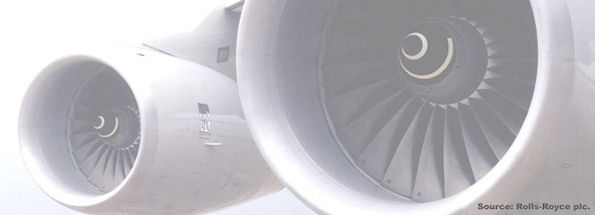|
|
 |
 |
 |
 |
 |
 |
 |
 |
| ACCENT |
 |
The manufacture of safety critical rotating components in modern aero engines is by nature very conservative. In order to achieve the required engine performance, thermal and mechanical stresses are pushed to the maximum, which in turn leaves the choice of materials to exotic super alloys. These materials are classed as difficult to machine under normal circumstances, but when added to the changes in mechanical properties which occur naturally from part to part, consequently variable and often unpredictable tool life, and the ever present possibility of random and unexpected process anomalies, machining processes can never be fully optimised. Stringent legislative controls are placed on safety critical component manufacture to ensure that parts entering service will function correctly and safely to a declared service life, and in declaring the service life for such a part, the machinability issues stated above have to be taken into consideration. Hence manufacturing process parameters are often reduced or tools are changed early to ensure part surface integrity.
The industry method adopted, is to “freeze” to process following process qualification to first article inspection, and successful part validation via laboratory examination and testing. Once frozen, no changes to process parameters are permitted without time consuming and costly re-validation.
ACCENT will allow the European Aero Engine manufacturers to improve their competitiveness by applying adaptive control techniques to the manufacture of their components. Being able to adapt the machining process to the constantly changing tool and component conditions whilst operating in a multi-dimensional "approved process window", processes will be optimised to the prevailing conditions and no longer "frozen". Benefits will be seen in terms of reduced part manufacturing process time, more consistent part quality in terms of geometry, surface and sub-surface properties, tool usage optimisation, elimination of costly part re-validation due to small process changes, and the possibility to improve component design due to optimised machined surfaces.
Project Goals:
- Development of standard procedure for definition of process parameter windows for the manufacture of critical aero engine components
- Develop methods whereby components manufactured within the process parameter window can be validated to meet demands of design and surface integrity requirements
- Provide manufacturing with a new methodology that will allow significant reduction in recurring validation costs
- Develop a novel standard procedure for adaptive control that is based on process monitoring techniques and will take account of factors responsible for producing variable part quality
- Provide aero engine manufacture with a methodology that can be adapted to individual company procedures that will allow the design and manufacture of critical components to be optimised
|
 |
|
|
|
 |
 |
|
 |
 |
|
